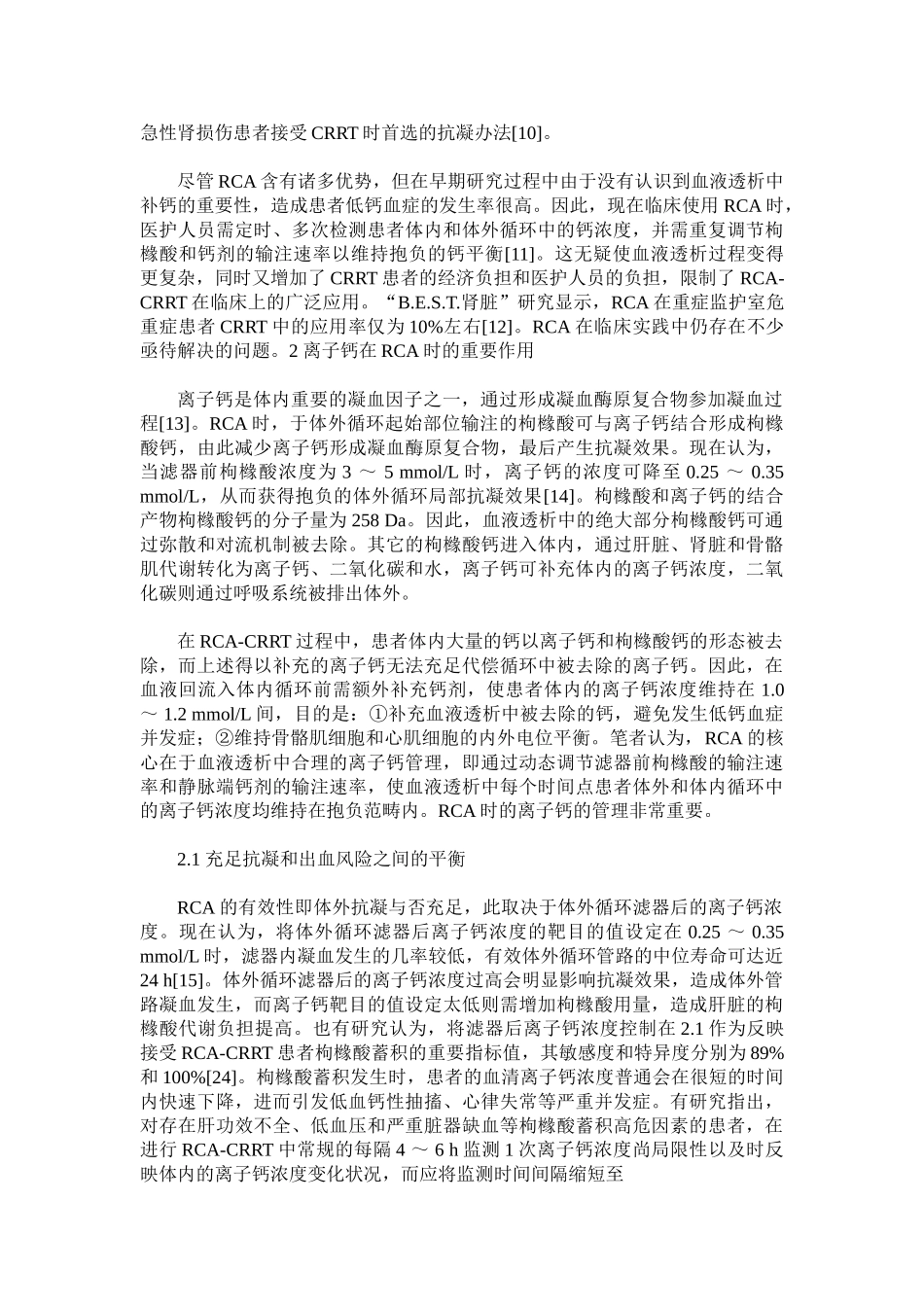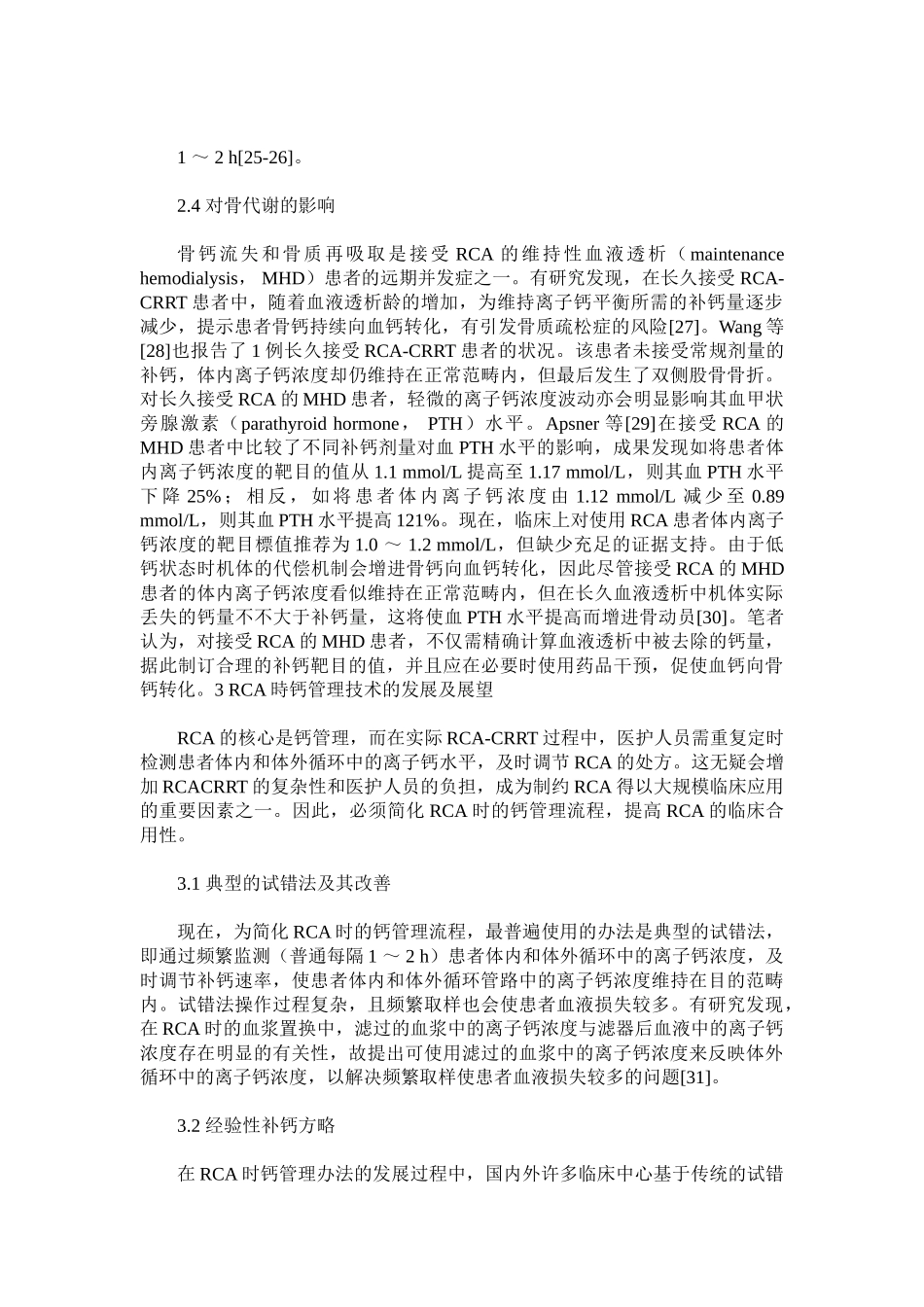血液净化治疗中局部枸橼酸抗凝时的钙管理摘要 局部枸橼酸抗凝(regional citrate anticoagulation, RCA)是血流动力学紊乱的危重症患者接受血液净化治疗时首选的抗凝办法。RCA 的核心在于血液透析中合理的钙管理,以确保血液透析能安全、有效地进行。近年来,随着研究的进一步,RCA 时的离子钙浓度被认为与充足抗凝和血液透析患者低钙血症、枸橼酸蓄积和骨钙流失的发生亲密有关。现对离子钙浓度的监测和管理技术已获得长足进步,使 RCA 得以更广泛地用于临床。ABSTRACT Regional citrate anticoagulation ( RCA ) is a preferred anticoagulation method for critically ill patients with hemodynamic disorders undergoing blood purification therapy. The core of RCA is reasonable calcium management in hemodialysis to ensure that hemodialysis can be performed safely and effectively. The concentration of ionized calcium at RCA is considered to be closely related to the occurrence of hypocalcemia, accumulation of citrate and loss of bone calcium in fully anticoagulated patients with hemodialysis. The technology for the monitoring and management of ionized calcium concentration has made great progress, making RCA more widely used in clinic.KEy WORDS blood purification ; anticoagulation ; continuous renal replacement therapy; regional citrate anticoagulation; ionized calcium體外循环抗凝是血液净化得以安全、有效进行的确保。枸橼酸用于血液净化抗凝已有 50 数年历史,其早在 20 世纪 60 年代就被用作血液透析的抗凝剂。1990 年,Mehta 等[1]又报告了全球首例使用局部枸橼酸抗凝(regional citrate anticoagulation, RCA)的持续性肾脏替代治疗(continuous renal replacement therapy, CRRT)状况。然而,现在使用 RCA 的 CRRT(下列简称为“RCA-CRRT”)在整个 CRRT 中的占比仍十分有限。一项对北美地区的调查显示,在接受 CRRT 的急性肾损伤患者中,使用 RCA 的患者占比仅为 13%[2]。笔者认为,RCA 未获广泛应用的因素重要在于研究早期患者并发低钙血症的几率很高。对枸橼酸药代动力学模型的研究发现,在使用不含钙透...


